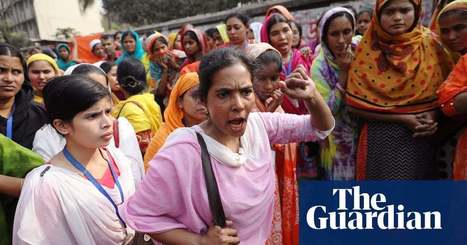With increasing climate risks, Bangladesh needs to continue investments to strengthen climate resilience in the coastal zones to protect the development gains, says a new World Bank report. The report, “Bangladesh: Enhancing Coastal Resilience in a Changing Climate” highlights the country’s journey to reducing vulnerability to climate change and recommends further actions towards improving the resilience of its coastal region. It analyzes the drivers of risks, how the government has reduced these risks, and offers new perspective and innovative solutions.
Research and publish the best content.
Get Started for FREE
Sign up with Facebook Sign up with X
I don't have a Facebook or a X account
Already have an account: Login
A collection of articles relating to the 'international' elements of Economics and relating to IB, Pre-U and A-Level Economics.
Curated by
Graham Watson
 Your new post is loading... Your new post is loading...
 Your new post is loading... Your new post is loading...
|
Katy Pineda's curator insight,
January 24, 2019 2:30 PM
Individuals in Bangladesh who are making the Spice Girls and Comic Relief shirts are being paid less than the local minimum wage. Bangladesh is such a popular area to operate because the individuals who are making the products are very skilled in clothing manufacturing and they offer cheap labor.
Unfortunately because they are getting paid so little, many workers feel the need to work overtime just to make ends meet. There are fire regulations and laws set in place but since there are so few inspectors, many inspections are not completed. The workers are aware of many issues but feel scared to report them due to retaliation. |













This UN clip looks at how climate change represents a fundamental threat to Bangladesh's developmental prospects, and how investment in enhancing climate resilience has made the coastal zone safer and help protect development.